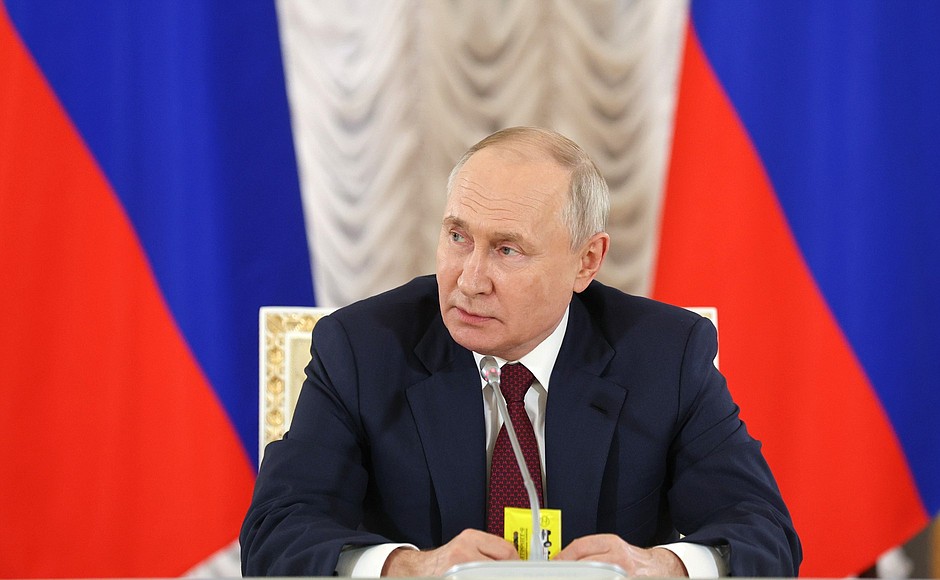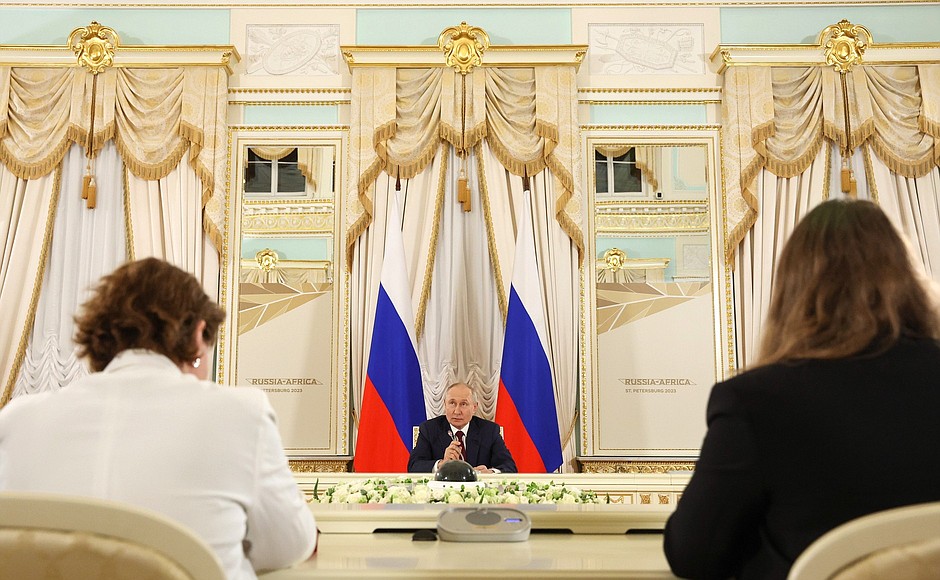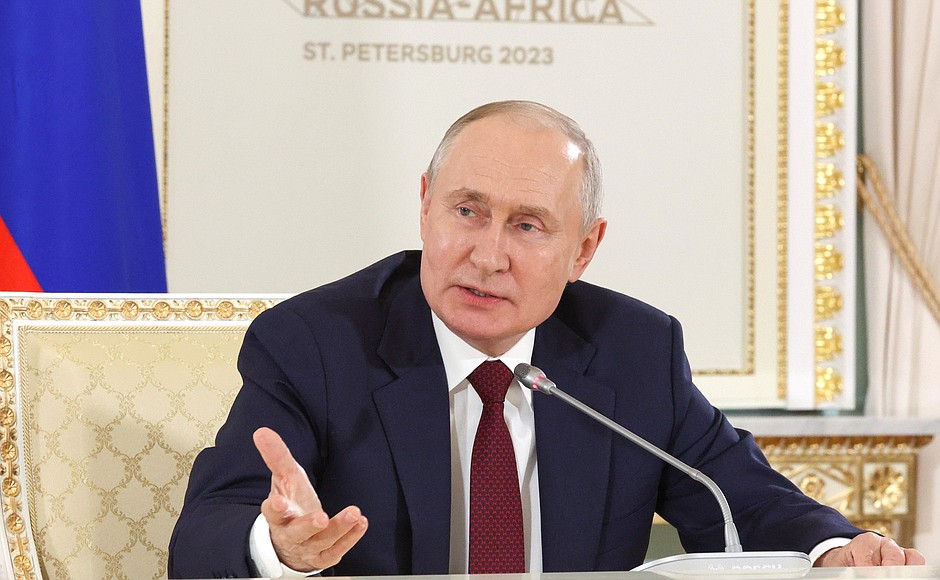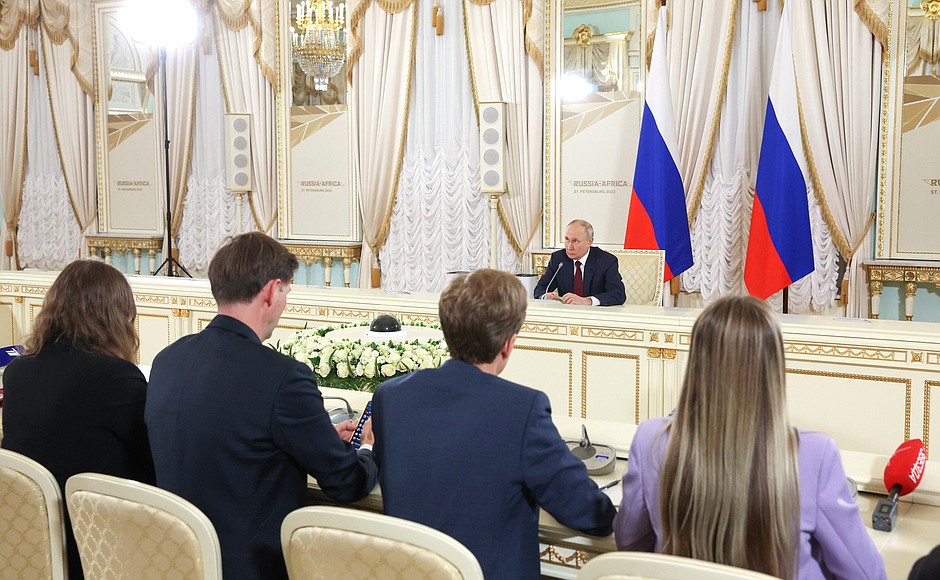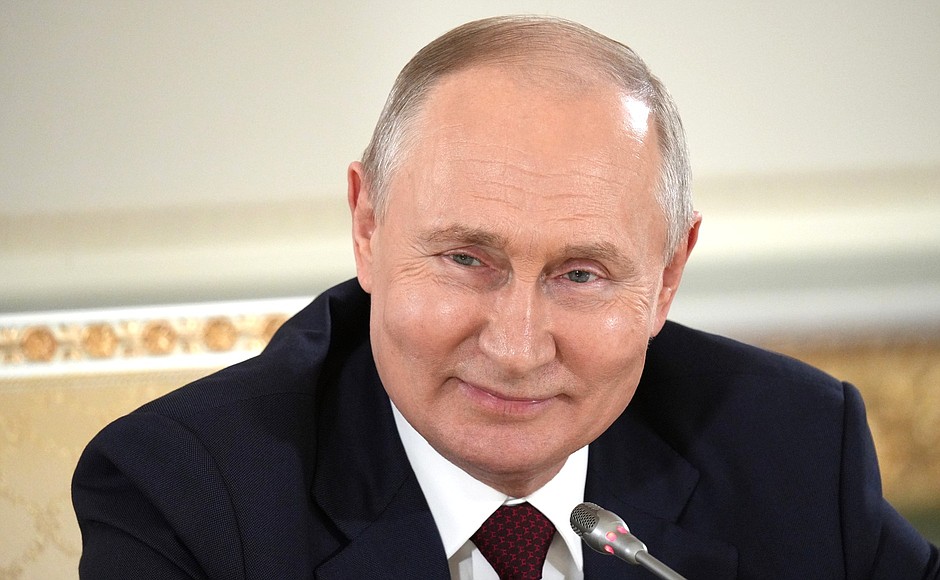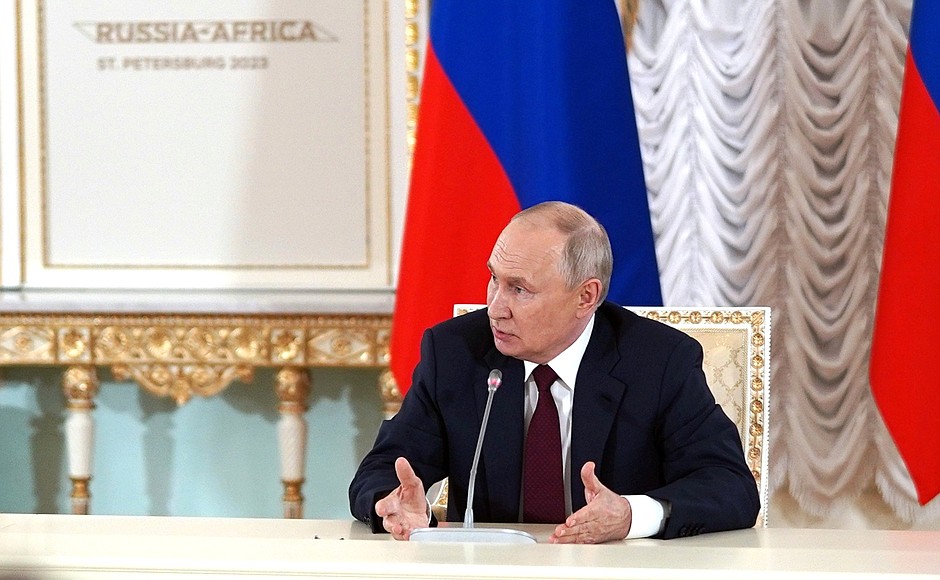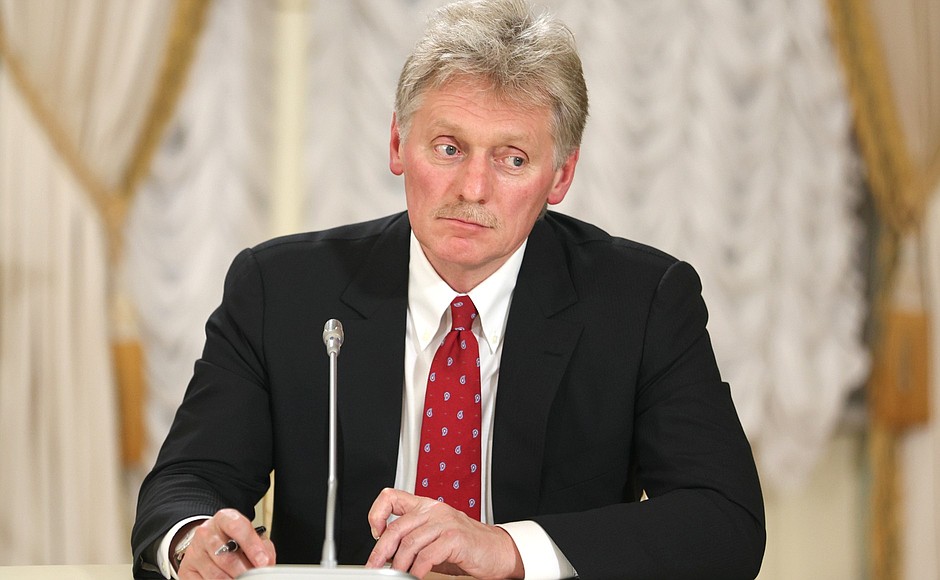Question: Mr President, during the summit and your meetings the African leaders several times remembered the Soviet Union, the strong relations which were created back then. I have a question in this regard. During the Soviet times our country was a leading voice of the national liberation and social justice for the entire world, including the African continent.
President of Russia Vladimir Putin: A leading voice is very good, but a leading voice and a Kalashnikov rifle was way more efficient back then. This is why everybody remembers our specific aid to African countries in the struggle for their liberation.
Question: Definitely, among other things. What messages does modern Russia deliver to Africa? Is there anything we can offer apart from trade and economic cooperation and what kind of cooperation is in demand from the African side?
Vladimir Putin: You know, here is what I often think about when I meet with our African friends. At a certain period of time, during the Soviet era, I remember it well, an opinion was formed within the society that we were wasting money. Well, why do we spend money on Africa? Where is this Africa? We have a lot of our own problems.
And now, when I talk with our friends from Africa, I think with gratitude of the people who pursued such policy in Africa. They laid great foundations of durability, friendly relations with African countries, which… I do not know whether they expected such results themselves or not. And this was done back then, naturally, and our attempts to work on the African track today are made in the interests of Russia, first and foremost.
There are many components here. The economic – let’s start with the economy. Such a huge potential and it is growing, at a very fast pace, at an exponential rate. There are already 1.5 billion people in Africa, and this is a very young population, growing very fast.
Everybody is well aware of the fact that the African continent is a depositary of mineral resources, and it is. Some Asian countries are actually converting their reserves into African mineral resources. You know, talented people, development is rapid. Yes, the population is still poor, it is clear, we are all well aware of that, but the progress is rapid.
You know, we all live our lives the same way, and this applies to you too: we get up in the morning, we go to work, we go home from work. And those who are working professionally, including the media community, those people, of course, can see what is happening in the world. The world is changing rapidly.
Take Indonesia. Its potential is enormous; it has a huge potential. Not to mention India, China – everyone knows about that. Brazil. Africa. There are countries that are real leaders. I cannot say that the future of the world is about Africa – no, the world is diverse. But Africa has vast potential.
So, of course, we should use everything that has been built up since Soviet times, these very good, trust-based relations, and work in a new way.
Yes, we did a lot of things unilaterally back then, but it was impossible to do otherwise. But it all matters, including in practical terms. For example, we have built many power plants, many steel works and infrastructure. These facilities need to be modernised, renovated and developed further – and it is easier and cheaper and more efficient for us to do this at our domestic, even if Soviet, facilities. There is all this practical groundwork that we must work on. In some places we are doing it.
But now, you know, our African friends are not asking for any handouts. Moreover, both at the first summit, and then in the bilateral format between summits, and at this summit, many people said: we are not here to ask for anything. And it is true. There has not been a single direct request: give us this, give us that – no, everyone is trying to find projects that would be mutually acceptable and interesting for both sides. This is a change, and such a serious one at that.
But everyone remembers what happened during their struggle for independence. So these two or two and a half days, I should say three days, I was very pleased to see that… There are different people, of course, different countries and different policies, but in general the African continent is extremely friendly and positive towards us. This is an important foundation we can use to build business relations as well.
Our trade volumes may be small, but the potential is immense. In fact, grain and the like are not the only commodities they are interested in – I will talk about it in a minute, it is also important because many people suffer from malnutrition there; 600 million people do not have power supply – 600 million people live without electricity. But the potential is huge. Many are interested not just in grain, but in agriculture in general, in developing it, in building factories, mastering innovative agricultural technology, agricultural equipment, building fertiliser plants. They are not simply saying “give us some fertiliser,” which would not be bad in itself, of course, but they want to go further and build these plants. Moreover, they are ready to open up their countries to our investment and create an empowering environment, enabling our businesses to build their plants, gain a foothold in the region and make money there.
The same applies to energy. There is a lot of demand for nuclear power. Many countries have reached a point where they can use nuclear energy. This is what they want and can do.
They are also interested in exploring opportunities in the space sector and are actually working on this matter. You know, this is happening with the developing countries all around the world… Just look at Asia. Only recently it was impossible to imagine that something like that would be happening in certain countries, but today, they are carrying out space missions. This is happening very rapidly. We must make sure that we do not waste these opportunities, especially since the Soviet-era legacy gives us a big advantage here.
The atmosphere was very relaxed and friendly in every sense of the word. These people want to work with us. As for us, we must do everything to move in this direction, and this is what we will do. I have already listed certain economic sectors. It goes without saying that we will support them whenever we can, and will keep providing humanitarian aid, etc.
There is a lot of demand for working together on security matters. Africa still suffers from terrorism. This is a challenge for many regions and countries there. We know all too well that stability at home is a must in order to promote economic development, while there can be no stability without security. It is for this reason that they want to continue working with us and are sincere about it. This includes military-technical cooperation. Outside pressure has done nothing to scare them away. They are working with us by buying our weapons, while dozens and hundreds of African military personnel are enrolled in the Defence Ministry’s academies. They come to Russia to study. This is also a major asset in terms of our future relations because military specialists return home having acquired and preserved connections, contacts and built a certain level of trust, while also knowing how to operate and fight using our military gear and equipment.
This makes military-technical cooperation and arms supplies the next step. This is what is happening in India: there are a lot of matters on the agenda and they are technologically ready to launch production on their territory. Overall, we can be complementary in many spheres. Let me reiterate that this is exactly what the African countries are telling us: we are not here with a begging bowl – we came here in search of interesting joint and mutually beneficial projects.
Finally, the international affairs and the work at international venues. Occasionally, they need our support as a country that is a permanent member of the UN Security Council. Many were remembered. Honestly speaking, I myself forgot that we had supported them somewhere, but they remember it. They have not forgotten it. They say: “Thank you, you did this or that for us, you supported us.” Well, yes, you are welcome. And it is only later that I remember: it is true, we did support them.
But for our part, we are also sincere in our attitude towards Africa. You must know this rule: we like a person for the good we have done for them, and we hate a person if we have wronged them. This makes a lot of sense, because we see ourselves reflected in a person depending on what we have done for them. We did something good, and we look at him, recall [the facts], and feel pleased: good for me, how great I am! On the contrary, if we wronged a person, we say when looking at them: that is not a good person. And this is because we ourselves are not up to the mark in this case. They remind us of all the bad thing we have done.
As for Africa, there is nothing for us to blame ourselves for. We have done a lot of good and useful things for Africa. When we contact African leaders and they say as much, we always have a feeling that we are good people. This is true in this case and it is very good.
Question: Mr President, could you please tell us about the meeting on Ukraine yesterday late in the evening in more detail? What matters were of interest for our African partners? Was it possible to reach a consensus? Will we implement the African peace initiative or at least some of its elements? Is it possible that they will renounce it on their own after being given our assurances that we will supply grain to the countries which need it, including free of charge? Thank you.
Vladimir Putin: Oh, no, there is no connection between the two points. When we say that the Soviet Union was helping African countries in their fight for independence, we should not forget that Ukraine was part of the USSR at the time, and that they generally have a good and sincere attitude towards Ukraine. I want to stress this point: they are sincerely thinking about what they can do to stop the conflict. They are doing this not only and not so much under external pressure as out of internal motives. Some of them spent their university years in Ukraine. Naturally, the training was in Russian, of course. And they did not like the nationalists in Ukraine – neither then, nor now. Some described how they had been treated by those nationalists.
But, just like any peace initiative, this initiative is helpful because it is focused on finding a peaceful solution to the conflict. There are certain provisions of this peace initiative that are being implemented after our meeting in St Petersburg six weeks ago. They are being implemented either way and yet, these initiatives, they contain ten provisions in total, including prisoner exchange, detained persons’ exchange, dealing with issues related to families and humanitarian affairs, children, and so on.
You must know this story about children’s kidnappings that was actually blown out of proportion. Our explanation is simple: there were no kidnappings; there were attempts and specific actions to rescue the children that were evacuated from the area of hostilities. Were we supposed to keep children’s homes under artillery fire? Of course, we evacuated the children.
There are cases of families that broke up due to family issues where one parent lives in Ukraine and the other… There was one case, in particular: the mother with the child lived in Russia; she died of an illness while the father was in Ukraine. The child was left alone. Of course, we are ready to hand the child over to the father. There is no problem with that. Any problems were made up.
We explain that, we have a Commissioner for Children’s Rights. I was surprised to hear that many know her name, Ms Lvova-Belova. I was slightly taken aback. They know about her. This means that people care and want to know more specifics of this matter. That was one of the provisions.
And yet, there are things that are very challenging or impossible to achieve. One of such provisions is ceasefire. The Ukrainian army is advancing; they are in the middle of a major strategic offensive. Why are we the party being asked to cease fire? We cannot cease fire when we are being attacked. When I point this out, people realise this.
Or, for example, beginning the peace talks. We never refused to begin talks. You know this, I constantly speak about this. We have never rejected peace talks. But the other side issued a decree prohibiting talks. I say: “What if we do not reject talks but they issued a prohibitive decree?” When I said this yesterday at the meeting, the other participants looked at each other and realised they could not insist. Both parties must agree for the process to begin.
There are other, simpler issues. But overall, my opinion is that the initiative can be used as a foundation for certain processes aimed at finding peace just like others, such as China’s peace initiative. It is not their intention to make the initiative incompatible or competing with the others.
The conversation in general was long and constructive. I think we spoke for almost two hours. Every participant had a chance to share their opinion on the matter.
I want to stress once again: we spoke from the position of friendship, trying to find realistic ways and opportunities to lower the tensions.
<…>
